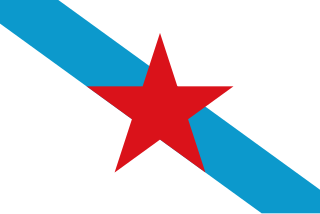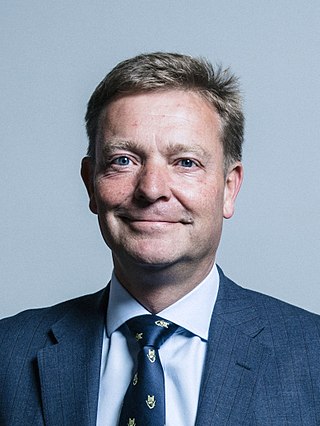Anti-Federalist League | |
|---|---|
| Founded | 1991 |
| Dissolved | 1993 |
| Succeeded by | UK Independence Party |
| Ideology | Euroscepticism |
The Anti-Federalist League was a small cross-party organisation in the United Kingdom, formed in 1991 to campaign against the Maastricht Treaty. [1] It is mainly remembered now as the forerunner of the UK Independence Party.
The main founder of the Anti-Federalist League was Alan Sked, lecturer at the London School of Economics, leading figure in the Bruges Group and former official of the Liberal Party. [2] The Maastricht Treaty, which greatly increased the powers of the European Commission, was widely unpopular according to opinion polls, but all three of the main parties had pledged to support its ratification in the House of Commons. Sked and others felt that this denied voters a say on a crucial constitutional issue. Running AFL candidates was supposed to make good this shortfall in the democratic process. Another founder was Helen Szamuely. [3] Members of the League included future UKIP leaders Nigel Farage and Gerard Batten.
The League stood seventeen candidates in the 1992 general election, but failed to make any impact or attract any press attention. It lost all its deposits. The following year, Alan Sked represented it in by-elections in Newbury (gaining 1% of the vote) and Christchurch (1.6%).
Amidst extraordinary scenes in the House of Commons, and in the teeth of intense opposition from a minority of Conservative MPs known as the Maastricht Rebels, the Maastricht Treaty finally passed into law. Many members of the Anti-Federalist League concluded that with the Treaty in place, the only option for anti-federalists was to campaign for complete British withdrawal from the European Union. To this end, Sked and others met in late 1993 to set up a full-blown political party: the UK Independence Party. Not all members of the League followed Sked into the new organisation, but the party did effectively supersede the League, which ceased to exist.

The European Economic Community (EEC) was a regional organisation created by the Treaty of Rome of 1957, aiming to foster economic integration among its member states. It was subsequently renamed the European Community (EC) upon becoming integrated into the first pillar of the newly formed European Union in 1993. In the popular language, however, the singular European Community was sometimes inaccurately used in the wider sense of the plural European Communities, in spite of the latter designation covering all the three constituent entities of the first pillar.

The Treaty on European Union, commonly known as the Maastricht Treaty, is the foundation treaty of the European Union (EU). Concluded in 1992 between the then-twelve member states of the European Communities, it announced "a new stage in the process of European integration" chiefly in provisions for a shared European citizenship, for the eventual introduction of a single currency, and for common foreign and security policies, and a number of changes to the European institutions and their decision taking procedures, not least a strengthening of the powers of the European Parliament and more majority voting on the Council of Ministers. Although these were seen by many to presage a "federal Europe", key areas remained inter-governmental with national governments collectively taking key decisions. This constitutional debate continued through the negotiation of subsequent treaties, culminating in the 2007 Treaty of Lisbon.

The European Union is a geo-political entity, created in 1993, covering a large portion of the European continent. It is founded upon numerous treaties and has undergone expansions and secessions that have taken it from six member states to 27, a majority of the states in Europe.

The UK Independence Party is a Eurosceptic, right-wing populist political party in the United Kingdom. The party reached its greatest level of success in the mid-2010s, when it gained two members of parliament and was the largest party representing the UK in the European Parliament. The party is currently led by Neil Hamilton.

The Maastricht Rebels were British Members of Parliament (MPs) belonging to the then governing Conservative Party who refused to support the government of Prime Minister John Major in a series of votes in the House of Commons on the issue of the implementation of the Maastricht Treaty in British law.
European integration is the process of industrial, economic, political, legal, social, and cultural integration of states wholly or partially in Europe, or nearby. European integration has primarily but not exclusively come about through the European Union and its policies.

Richard Graham Corbett CBE is a former British politician who served as the final Leader of the European Parliamentary Labour Party (EPLP), from 2017 to 2020.

The European Movement International is a lobbying association that coordinates the efforts of associations and national councils with the goal of promoting European integration, and disseminating information about it.

Alan Sked is a British Eurosceptic academic. He founded the Anti-Federalist League and its successor the UK Independence Party (UKIP). He is Professor Emeritus of International History at the London School of Economics and has stood as a candidate in several parliamentary elections.
Paul Sykes is an English businessman and political donor. He opposed Britain's membership of the European Union and has donated to the UK Independence Party. He had previously supported the Conservative Party, but disagreed with its support of the Maastricht Treaty.

Euroscepticism in the United Kingdom is a continuum of belief ranging from the opposition to certain political policies of the European Union to the complete opposition to the United Kingdom’s membership of the European Union. It has been a significant element in the politics of the United Kingdom (UK). A 2009 Eurobarometer survey of EU citizens showed support for membership of the EU was lowest in the United Kingdom, alongside Latvia and Hungary.

Galician nationalism is a form of nationalism found mostly in Galicia, which asserts that Galicians are a nation and that promotes the cultural unity of Galicians. The political movement referred to as modern Galician nationalism was born at the beginning of the twentieth century from the idea of Galicianism.
The Jury Team was a British political campaign established in 2009 to back independent candidates in United Kingdom domestic and European elections. Although it was a registered UK political party, it was described as an umbrella organisation giving financial and marketing backing to independent candidates, who were free to set their own political agenda outside of the traditional model of standing as the candidate of a particular party. Jury Team employed a novel selection process for its independent candidates, allowing any member of the public to apply to be promoted for backing, and leaving final candidate selection to the public, by text message voting. After contesting the European Parliament elections in June 2009, the Jury Team's first Independent United Kingdom parliamentary candidate was John Smeaton, who stood in the 2009 Glasgow North East by-election.

Craig Mackinlay is a Conservative Party politician and businessman. Since May 2015, he has been the Member of Parliament (MP) for South Thanet.
David Lott is a British politician, best known as a political organiser for the UK Independence Party (UKIP).

New Deal was a registered political party in the United Kingdom. Its founder was Professor Alan Sked, who also founded the UK Independence Party (UKIP).
The Anti-Federalist League was a small party organisation in Britain, formed in 1991 by Alan Sked to campaign against the Maastricht Treaty. It was effectively the forerunner of the United Kingdom Independence Party. The League contested seventeen constituencies at the 1992 general election and Sked contested two by-elections in 1993.

Helen Szamuely was a historian and Eurosceptic who was a researcher for the Bruges Group and founder of the Anti-Federalist League. After the Maastricht Treaty was signed in 1992, she organised monthly meetings at the Red Lion near Parliament to discuss Europe.

The United Kingdom was a member state of the European Union (EU) and of its predecessor the European Communities (EC) – principally the European Economic Community (EEC) from 1 January 1973 until 31 January 2020. Since the foundation of the EEC, the UK had been an important neighbour and then leading member state, until Brexit ended 47 years of membership. During the UK's time as a member state two referendums were held on the issue of its membership, with the first being held on 5 June 1975, resulting in a vote to stay in the EC, and the second, held on 23 June 2016, which resulted in the vote to leave the EU.
All for Unity was a political and electoral alliance in Scotland. Founded in July 2020 by George Galloway, it was a British unionist party which opposed Scottish independence. It fielded candidates at the 2021 Scottish Parliament election but won no seats.